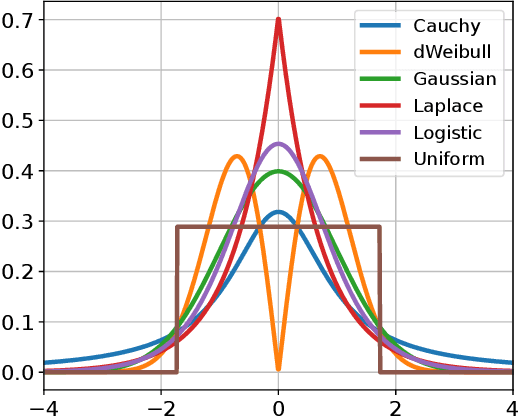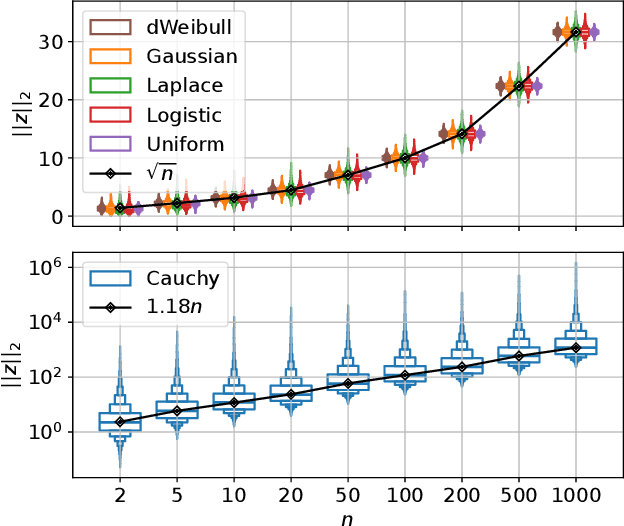Abnormal Mutations: Evolution Strategies Don't Require Gaussianity
Paper and Code
Feb 05, 2025



The mutation process in evolution strategies has been interlinked with the normal distribution since its inception. Many lines of reasoning have been given for this strong dependency, ranging from maximum entropy arguments to the need for isotropy. However, some theoretical results suggest that other distributions might lead to similar local convergence properties. This paper empirically shows that a wide range of evolutionary strategies, from the (1+1)-ES to CMA-ES, show comparable optimization performance when using a mutation distribution other than the standard Gaussian. Replacing it with, e.g., uniformly distributed mutations, does not deteriorate the performance of ES, when using the default adaptation mechanism for the strategy parameters. We observe that these results hold not only for the sphere model but also for a wider range of benchmark problems.
 Add to Chrome
Add to Chrome Add to Firefox
Add to Firefox Add to Edge
Add to Edge